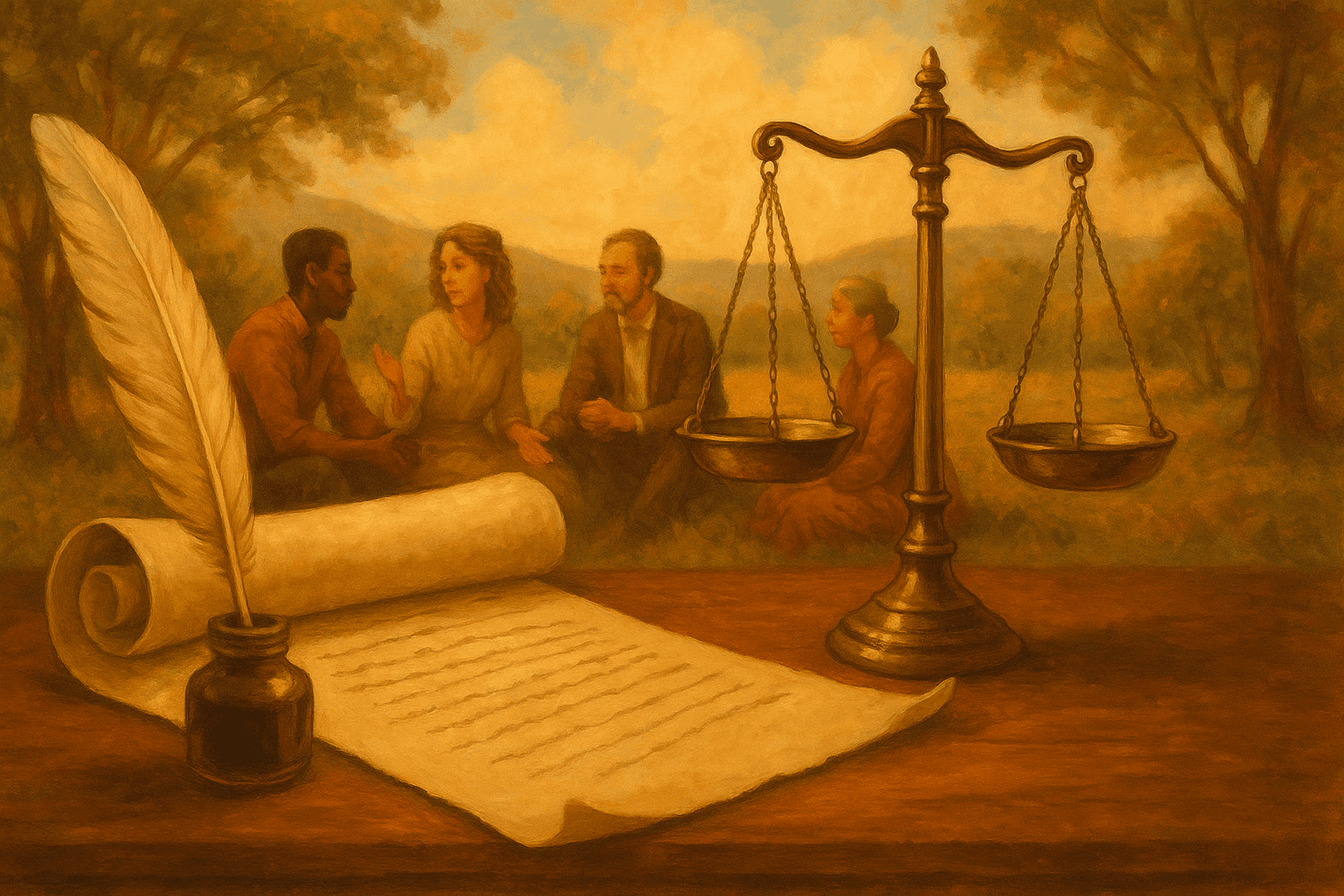Understanding Legislative Authority in Locke's Second Treatise of Government

John Locke’s ' Second Treatise of Government ' is a cornerstone in political philosophy, particularly when examining the theme of legislative authority. In a world where governance often seems dictated by lineage or force, Locke takes a bold stance: true authority emerges not from inheritance or coercion but from the explicit consent of the governed. Let’s dive into how he unpacks this idea and its implications for our understanding of legitimate government.
From the outset, Locke presents a radical notion of political power. He argues that no individual, including heirs of a supposed divine right, holds inherent authority over others. This perspective dismantles the traditional views of succession, urging a reevaluation of who truly holds the reins of power. In essence, Locke asserts that authority should be rooted in the collective agreement rather than familial ties or mere force. This line of thought is especially relevant today as we navigate political landscapes often marred by questions of legitimacy.
As we delve deeper, Locke’s examination of legislative authority is intricately tied to the state of nature, a concept he uses to illustrate the rights and freedoms individuals possess before any governmental structure is established. Here, individuals enjoy perfect freedom and equality, bound only by natural laws that advocate for the preservation of life and property. Locke emphasizes that while individuals have the liberty to act, they also bear the responsibility of ensuring that their actions do not harm others. This balance sets the stage for the emergence of civil government, a necessary mechanism to protect these inherent rights.
The discussion continues as Locke introduces the state of war, highlighting the dangers of unchecked power and the necessity of a common authority to mediate conflict. He argues that individuals unite to escape this precarious state, seeking a political framework that upholds justice and protects the innocent. The historical references he employs, including appeals to divine judgment, underscore the importance of a legitimate authority in safeguarding societal peace. This raises pertinent questions about who has the right to declare war and how individuals can ensure justice within their communities.
In framing legislative authority, Locke emphasizes that it must be anchored in the consent of the people. This leads us to the distinction between different forms of power: paternal, political, and despotical. While paternal power is limited and ultimately serves the child's benefit, political power derives from collective consent aimed at protecting life, liberty, and property. Despotical power, in contrast, represents a dangerous overreach, often justified through coercion or violence. This analysis is critical; it not only clarifies the nature of authority but also delineates the boundaries within which legitimate governance must operate.
Locke’s insights extend into the realm of property rights, where he argues that ownership arises from the mixing of labor with resources. This foundational principle not only legitimizes property claims but also raises important questions about economic inequality and societal structures. How do we ensure that legislative frameworks reflect these principles in modern contexts? The introduction of money complicates this dynamic, prompting discussions around the distribution of wealth and resources.
Furthermore, as Locke progresses through his treatise, he underscores the necessity of accountability within legislative bodies. He posits that the ultimate authority rests with the people; if the government fails to uphold its responsibilities or acts against the public good, citizens have the right to dissolve it and establish a new system. This principle is not just theoretical; it is a call to action, urging us to remain vigilant against tyranny and to foster a governance model that genuinely reflects the will of the people.
As we wrap up our exploration of legislative authority in Locke’s work, it becomes clear that his arguments remain relevant today. The notion that power must be derived from consent and that authority is fundamentally a social contract challenges us to reflect on our own political systems. Are they truly representative? Do they serve the common good? In a world rife with questions about governance, Locke’s treatise provides a framework for understanding the legitimacy of authority and the vital role of the populace in shaping their government.
In conclusion, Locke’s insights into legislative authority are not just historical musings; they are a powerful reminder of the ongoing struggle for justice and representation in our societies. The true essence of governance lies in its ability to reflect the collective will of its people. As we navigate contemporary political landscapes, may we always remember that our voices matter in defining the authority that governs us.
Books: Second Treatise of Government
Authors: John Locke
Publishers: Public Domain